If any of us ever wondered what a playground of politicians would look like, the last two weeks have surely showed us.
First up, in the wake of the EU referendum results, we saw our Prime Minister David Cameron take a ride down the Number 10 slide, announcing his departure at the bottom – with an almighty splash.
Next, Leader of the Leavers gang, Boris Johnson, looked set to see-saw himself to the top of the Tory party, only for his see-saw opponent, Michael Gove, to kick-off harder in the final minutes, boffing Boris out the way, and catapaulting himself into the sandpit. It was there that he 'reluctantly' concluded he should be King of the [sand] Castle. [Waves own flag, helped by wife, Sarah.]
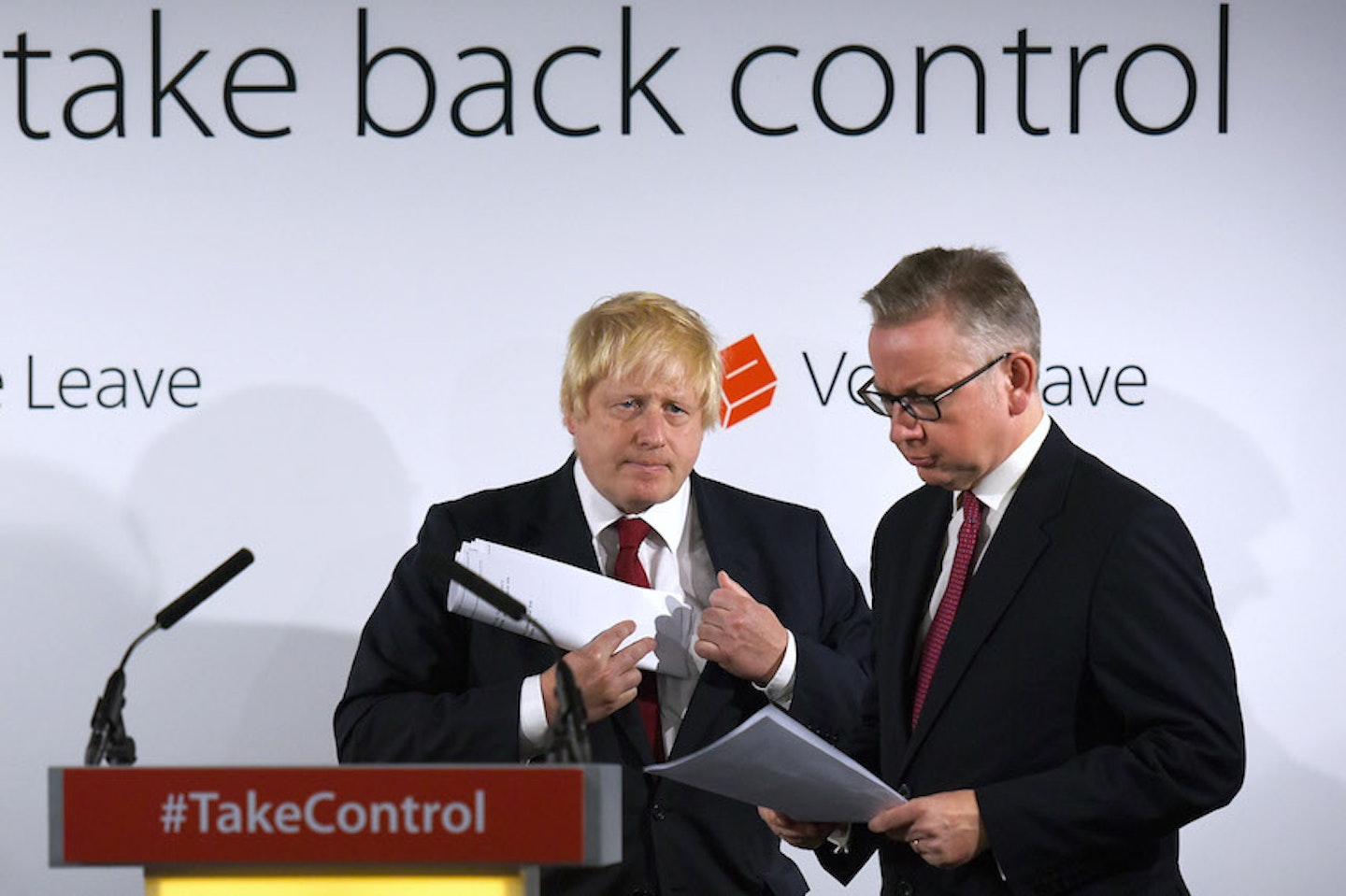
Then we saw Labour leader Jeremy Corbyn refuse to leave the climbing frame, clinging on with all his might as a number of others – both friends and foes – tugged angrily at his leg, wailing at him to get down and 'For heaven's sake, go...'.
And finally yesterday, playground meanie UKIP leader Nigel Farage announced he was done being a playground meanie and wanted to go back to being a normal meanie, just not in the playground.
What an eleven days it's been. But still so many questions continue to hang in the air, the most important of which is: who should lead the Conservative Party, and by extension, become our next Prime Minister? And if Jeremy Corbyn does announce his resignation, who should take on leadership of the Labour Party?
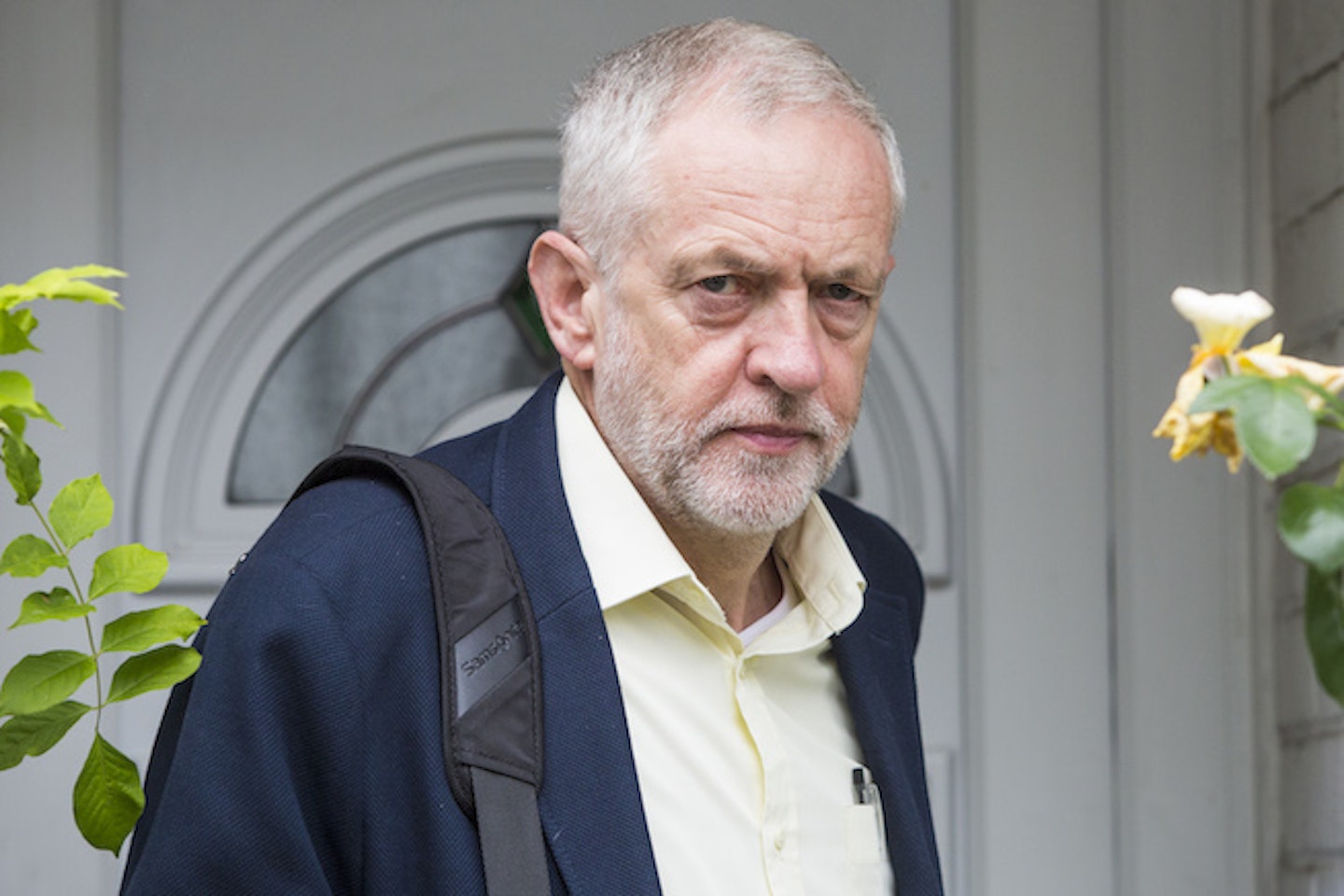
A number of names have been thrown into the mix, and many of the front-runners are women. But other than the fact that, for the most part, they've cleverly steered clear of the political playground referenced above, many of us (sheepishly) confess to not knowing all that much about them...
So we have compiled this: an in-depth look at three of today's front-running female politicans.
Theresa May
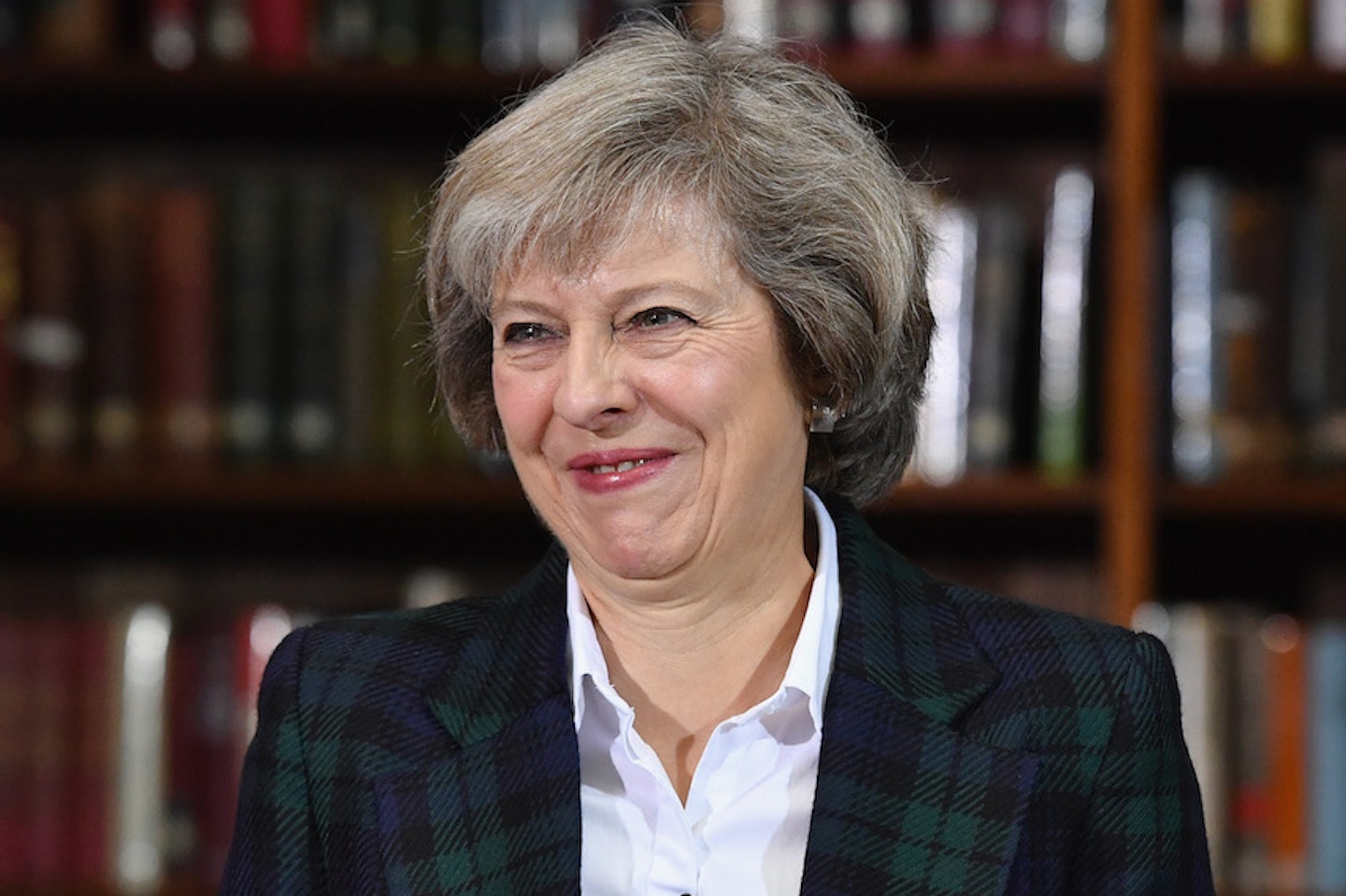
Party: Conservative
Current role: Home Secretary and MP for Maidenhead
EU Ref: Remainer. But has said recently that 'Brexit means Brexit'. 'There must be no attempts to remain inside the EU'.
Leadership pledge:
She identified three requirements:
1.) 'Strong, proven leadership'
2.) 'Leadership that can unite [the Conservative] Party and our country'
3.) 'A bold, new, positive vision for the future'
Politics:
Party: She was in favour of the 'modernisation' of the Conservatives, in 2002, famously claiming the Tories were viewed as 'the nasty party'. Fourteen years on, she says she has now 'never known our Party to be so alive with such creative policy thinking and such an obvious desire to improve people’s lives'.
Immigration: She has consistently voted in favour of tougher enforcement of immigration rules. Following Brexit she said she wanted to 'guarantee the position' of EU citizens already established in this country, but couldn't do so outright because the issue was 'up for negotation'.
Foreign Policy and Defence: She has voted in favour of UK military forces in combat operations overseas – including for UK airstrikes against ISIL in Syria last December – and for the Iraq war in 2003, although she also voted in favour of an investigation into it in 2006.
She believes trident nucleur submarines should be renewed as soon as possible, because of the threat posed by other countries, such as Russia.
Welfare and Benefits: She has almost always voted in favour of a reduction in spending on welfare benefits and was in favour of reducing housing benefit for social tenants deemed to have excess bedrooms in 2013.
Taxation: Theresa voted in favour of raising the threshold at which people start to pay income tax in April this year, and for increasing the rate of VAT in 2010. She has almost always voted against mansion tax and was not in favour of increasing the tax rate applied to income over £150,000, in 2012.
Home Affairs: In 2011, she voted in favour of introducing elected police and crime commissioners for each police area in England and Wales, outside of London. In April this year, she voted against giving asylum seekers permission to work if a decision on their application took longer thsn six months.
Backers: Amber Rudd, Justine Greening, Jeremy Hunt, Michael Fallon and Patrick McLoughlin.
Points of note:
In 2014 she became the longest-serving Home Secretary in the last 50 years.
In her capacity as such, she took on the Police Federation exposing corruption relating to the Hillsborough disaster and the tragic case of Stephen Lawrence.
Final word:
In 2014, The Guardian wrote: 'In an era when politics has been tarnished by decades of scandal and spin, May seems to represent a more decent, less personality-focused approach. She comes across as straightforward, shrewd and reassuringly staid. Unlike Tony Blair or David Cameron, she does not schmooze.'
Andrea Leadsom
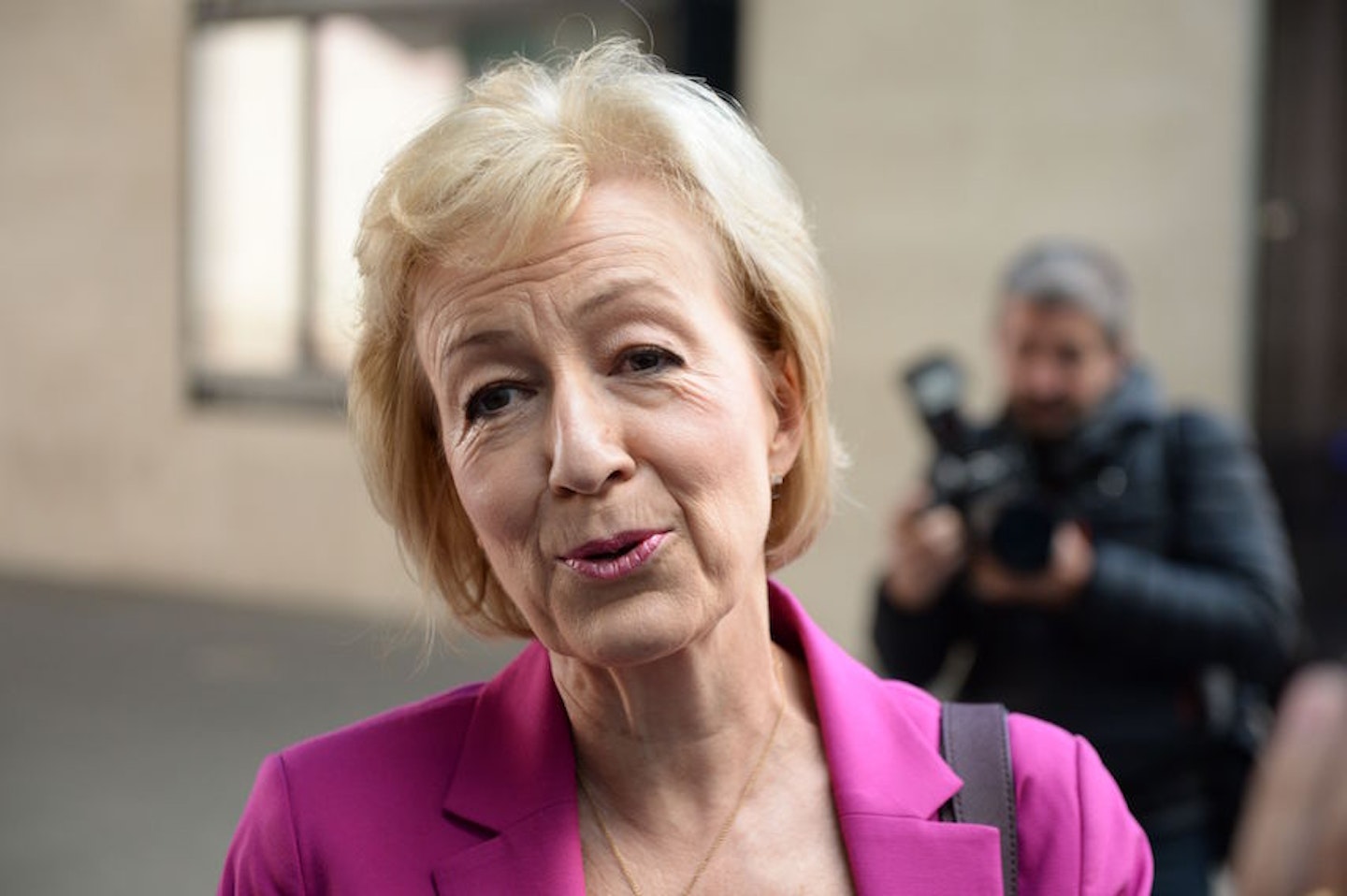
Party: Conservative
Current role: Energy Minister and MP for South Northamptonshire
EU Ref: Leave. 'The UK will leave the EU and freedom of movement will end,' she said post-Brexit, 'and the British parliament will decide how many people enter our country each year to live, work and contribute to our national life.'
Leadership Pledge:
1.) To trigger Article 50 as soon as she becomes Prime Minister
2.) The richest people will not be her focus
3.) Pupil premium and the apprenticeship levy will be protected
Politics:
Immigration: She has pledged to bring 'the most talented people to this country', and has said EU citizens living in the UK would not be 'used as bargaining chips in [EU] negotiations'.
Foreign Policy and Defence: Andrea has consistently voted for the use of UK military forces in combat operations overseas, including for UK airstrikes against ISIL in Syria last December. Generally she has voted for more EU integration, but was in favour of a referendum on the EU in 2015.
Welfare and Benefits: She has almost always voted for a reduction in spending on welfare benefits.
Taxation: Andrea has promised a 'simpler' taxation system, saying in her campaign launch speech, 'When there is room for tax cuts they must be focused on the low-paid'. In the past, she has consistently voted for raising the threshold at which people start to pay income tax, and has recently pledged to protect workers rights.
Home Affairs: She has consistently voted both for the introduction of elected Police and Crime Commissioners and also for a stricter asylum system.
Backers: Boris Johnson, Iain Duncan Smith, Penny Mourdant, Tim Loughton, Tom Pursglove, William Wragg, Chris Heaton-Harris.
Points of note:
She had a 25-year career in banking, including 10 years in BZW and Barclays where she worked in swaps and treasury, and 10 years as Head of Corporate Governance and Senior Investment Officer at Invesco Perpetual, one of the UK's largest retail fund managers.
With just six years as an MP, and only two as a junior minister, she would be the least experienced Prime Minister in modern memory.
Final word: The Guardian quoted a City source as saying: 'You don’t survive in the City as a woman without being very good at the details. Financial services is going to be a key area in Brexit negotiations and [Andrea] is clearly the best qualified candidate in that regard.'
Angela Eagle
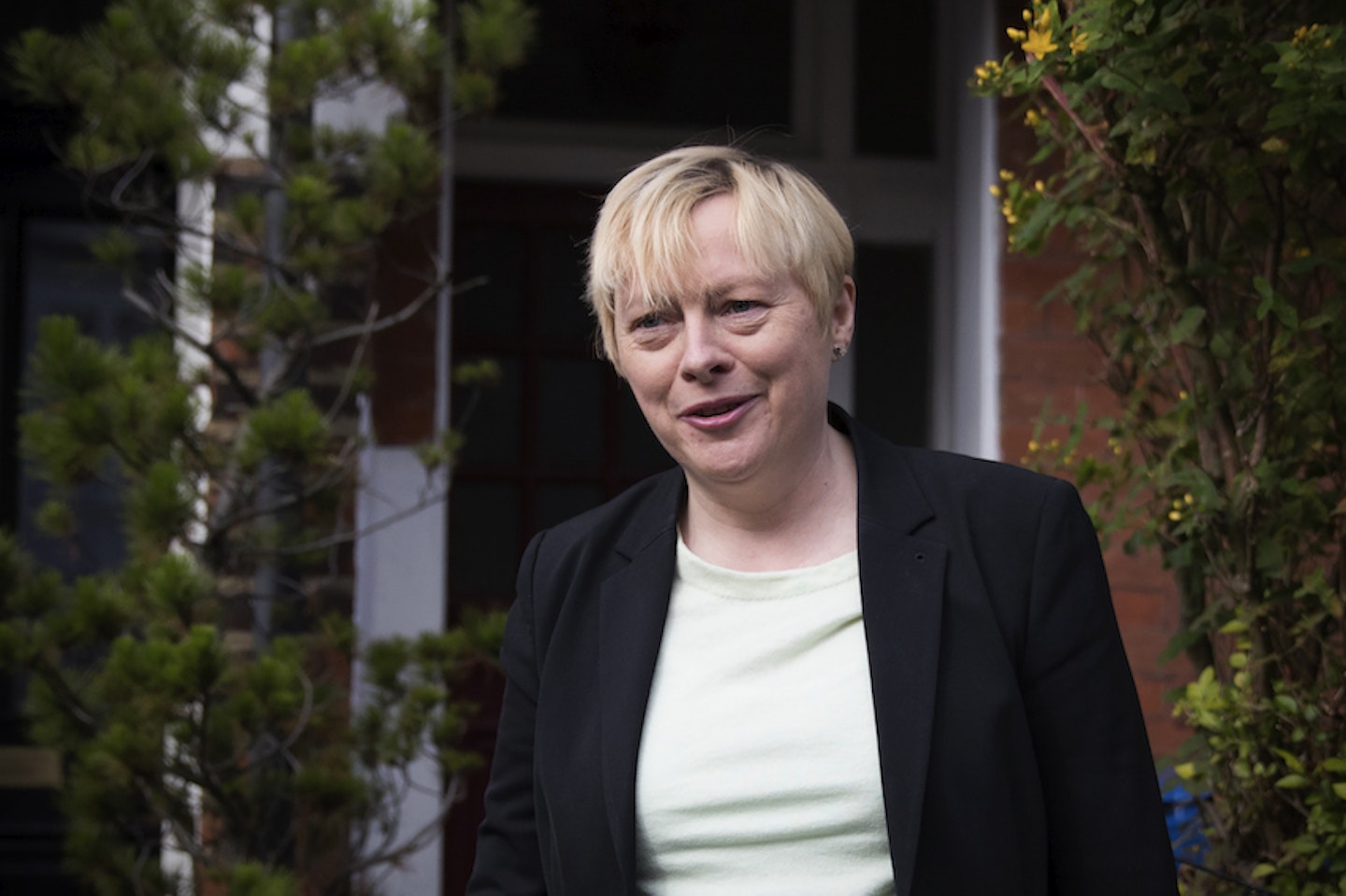
Party: Labour
Current role: MP for Wallasey and, until last week, Shadow Business Secretary
EU Ref: Remain. She was 'devastated by the result' and wrote in her resignation letter to Labour leader Jeremy Corbyn, 'Too many of our supporters were taken in by right-wing arguments and I believe this happened, in part, because under your leadership the case to remain in the EU was made with half-hearted ambivalene rather than full-throated clarity.'
Leadership Pledge: Has said she will run against Jeremy Corbyn if he refuses to resign. 'I have the support to run and resolve this impasse,' she told Sky News recently, 'and I will do so if Jeremy doesn't take action soon.'
Politics:
Foreign Policy and Defence: Angela has been in favour of the use of UK military forces in combat operations overseas, including suopporting UK airstrikes against ISIL in Syria last December. She voted in favour of the Iraq war in 2003, and has consistently voted against an investigation into it.
Welfare and Benefits: Angela has consistently voted in favour of raising welfare benefits in line with prices, and has always voted against the reduction of them.
Taxation: Angela voted consistently against raising the threshold at which people start to pay income tax, and has almost always been against increasing the rate of VAT.
Home Affairs: She almost always voted against the introduction of elected Police and Crime Commissioners, and has generally voted for a stricter asylum system.
Points of Note:
Angela is a fierce and amusing debater. When Chancellor George Osbourne filled in for PM David Cameron, it was Angela he was pitched against. As The Daily Telegraph wrote, she 'smacked Osbourne around the chamber'.
Her twin sister Maria is also in politics. Maria is MP for Garston and Halewood, and the former Shadow Minister for Culture, Sport and Media. She resigned in June this year in the mass resignation of the Shadow Cabinet following the EU Referendum results.
Final Word: As The Telegraph wrote, 'Why Angela Eagle? What does she bring to the Labour leadership? Intelligence. Passion. Eloquence. Humour. Authenticity.'
So... who would get your vote?
Voting data in this piece has been sourced from TheyWorkForYou.com
READ MORE: Prime Minister David Cameron announces his resignation
READ MORE: The Queen urges for 'cooler consideration' during Edinburgh visit
